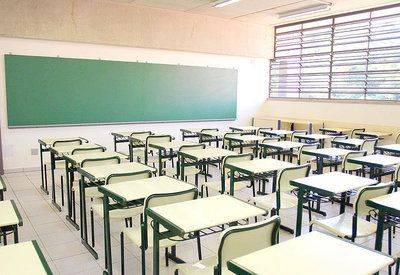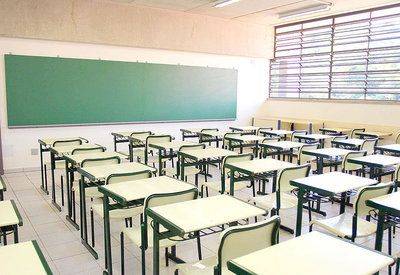 These op-eds were written by Education Justice Project students. Education Justice Project offers upper-division college courses for credit at Danville Correctional Center. Its mission is to build a model college-in-prison program that demonstrates the positive impacts of higher education upon incarcerated people, their families, the communities from which they come, the host institution, and society as a whole.
These op-eds were written by Education Justice Project students. Education Justice Project offers upper-division college courses for credit at Danville Correctional Center. Its mission is to build a model college-in-prison program that demonstrates the positive impacts of higher education upon incarcerated people, their families, the communities from which they come, the host institution, and society as a whole.
———
Mindfulness: A method to curb bullying and violent behavior, open minds with love and compassion
Just look at school shootings and suicides as a result of bullying: violent behavior has become and epidemic that needs to be addressed. Principals, faculty members, and parents need to take a proactive approach to getting across the message to our kids that bullying and violence has no place in school or home.
Going to school and interacting with other students can be stressful enough without bullying and violence. School is the most intense period of kids’ lives, and most students are either obsessed with being popular or afraid of their own insignificance. But if kids know that we (teachers/parents) genuinely have love and care for them, no matter what, they will be a lot more engaged.
Mindfulness meditation helps people pay attention to the present without forming any judgments. The idea is that over time you’ll feel more focused and more connected to yourself and others. Mindfulness can create a world where you experience depth and meaning, where you see joy and sadness more fully and settle more deeply into an authentic way of being.
Mindfulness meditation practice could be used as a tool to reduce bullying and violent behavior at home and at school. Bullying comes from the unintended consequences of aggressive parenting. The anger from parents is passed to the child, and that child passes that anger on to another child. Students need to have a space where they can be themselves and not be judged. There are far too many students in this situation, one that feels helpless and empty.
There should be an in-school and after-school program that introduces mindfulness to children in an effort to embrace love and kindness for the most vulnerable children. Mindfulness can monitor the children’s mood, relationships with peers and teachers, and emotional self-regulation. It can help them figure out where they are physically, mentally, and emotionally and work from there.
Let’s improve children’s ability to respond to bullying, and enable them to consider a matter at length. Most children are afraid to discuss the issue of bullying because it might get back to the bully. Part of mindfulness is discussing, to gain perspective, listen better and step back to consider more choices and make decisions more clearly and intentionally, rather than reactively.
I’ve been practicing mindfulness meditation for the past two years, and I can see a dramatic change with my behavior. I’m currently incarcerated, and I meet with a mindfulness discussion group once a week as part of an EJP (Education Justice Project) program.
Prison is notorious for bullying and violence that can happen anytime. The mindfulness discussion group I’m part of includes violent men dealing with acceptance and compassion. Through this group, I have seen them reduce their stress hormones and bounce back faster from negative situations. Being able to talk about one’s insecurities in front of strangers and not be judged could be a big weight lifted from one’s shoulder. We’ve become better people because of our mindfulness practice.
Even the most painful and difficult situations in life, like bullying and violence, can be recycled into something meaningful. Children have the capacity to make themselves available to act with delicacy and compassion towards each other. Mindfulness practice could provide a comprehensive model of the mind and can address human suffering.
Let’s offer this as an option. When we look so far ahead to the next thing, we miss what’s going on in the present. You never want to be left wondering if a person would survive if only there was someone who had acted to protect them. I want people to understand the crisis that our children face, and make people act.
— Chittakone Bangsengthong
———
Transformation Through Education
Champaign-Urbana would do well to know that prison incarceration and recidivism affects this vibrant community in a huge way. At a time when the state’s economy is mired in a seemingly perpetual recession and with social services being cut across the state, the prison population continues to grow as a result of increased mandatory minimum sentencing guidelines, reduced community rehabilitation, and a decrease in educational programs.
According to most government and private economists, it costs more than twice as much to incarcerate someone than to educate that person; furthermore, there is a consensus that lack of education is a major contributing factor to crime and recidivism.
The Education Justice Project, or EJP, is a learning program instituted by the University of Illinois that brings higher-level college classes to the Danville Correctional Center. EJP’s mission statement is one of transforming through education; in doing so, it transforms the communities to which incarcerated men return, many of which are located right here in Central Illinois.
EJP has many alumni now living as free men within their communities and can boast of a recidivism rate of almost zero percent amongst the whole population of free alumni. To find out more about this program and how you can help support it, log on to www.educationjustice.net.
— Samuel Santiago








